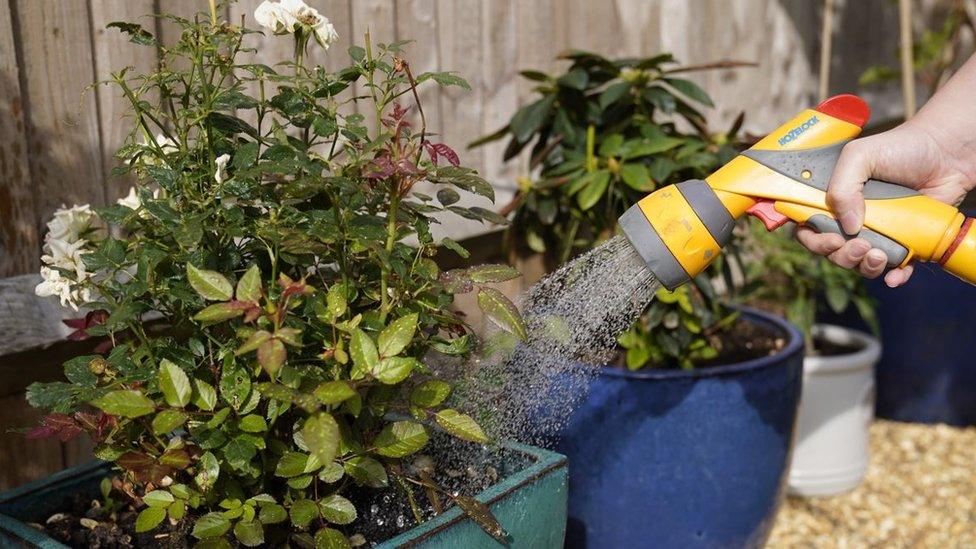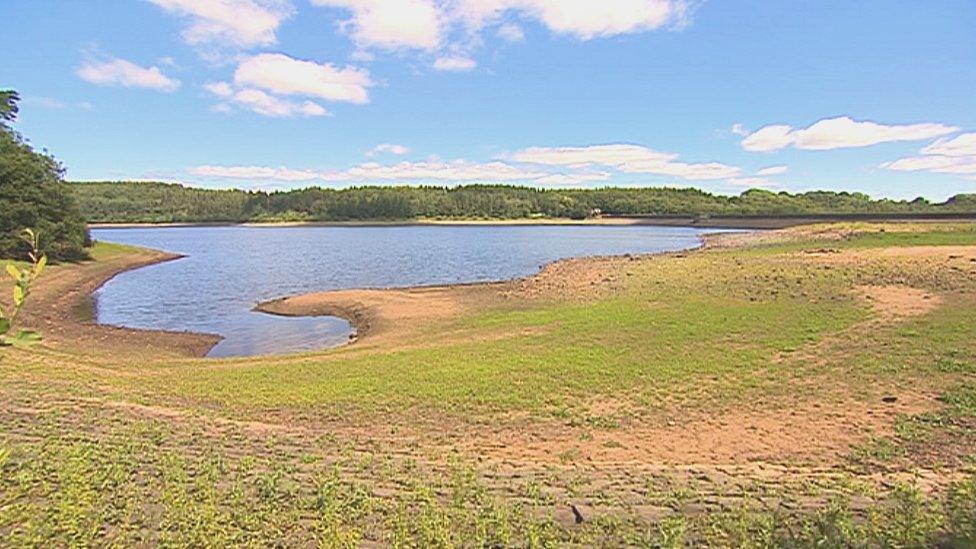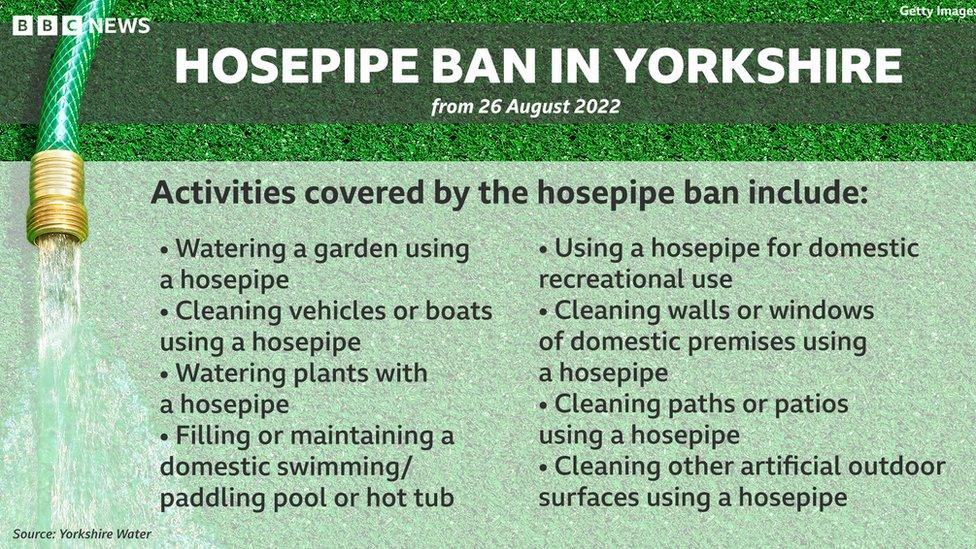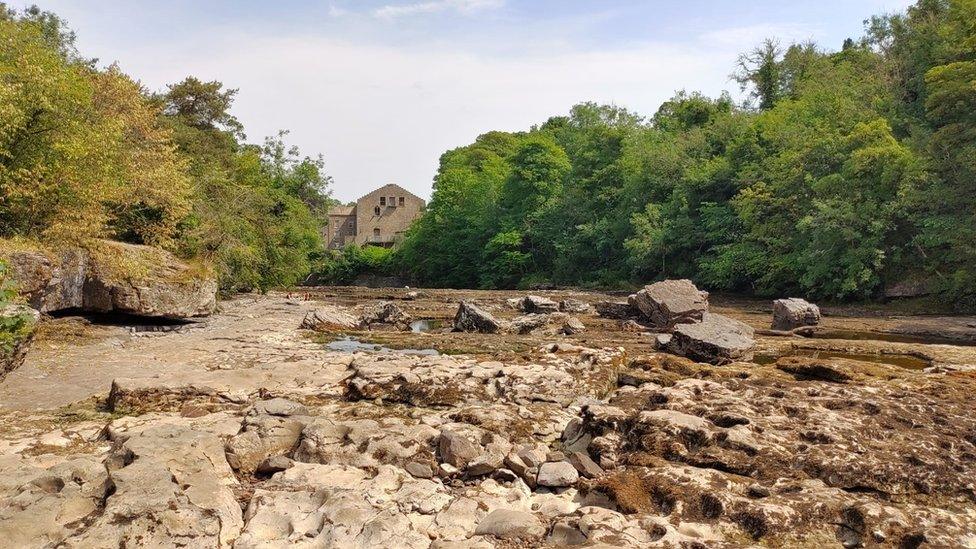Yorkshire Water hosepipe ban to start on 26 August
- Published

The last hosepipe ban in the region was during the drought of 1995
Yorkshire Water, which supplies five million customers, has announced its first hosepipe ban in 27 years.
It said reservoir levels had fallen below 50% for the first time since the drought of 1995 and it would take months of rain for them to recover.
Anyone breaking the temporary ban, which starts on 26 August, faces a fine of up to £1,000.
It comes as the Met Office issued an amber extreme heat warning for much of England amid a new heatwave.
Neil Dewis, head of water at the company, said: "We've been doing everything we can to avoid putting in restrictions but unfortunately they're now necessary as part of our drought planning."

Yorkshire Water said its reservoir levels have fallen to below 50%.
He said the decision to introduce a ban was "based on the risk that water stocks continue to fall in the coming weeks".
Mr Dewis added: "We need to make sure that we have enough supply for the essential needs of people across the region this year and next, as well as making sure we're able to protect our local environment by limiting the amount of water we have to draw from the rivers."
The ban follows a number of others announced in parts of southern England and Wales.

Analysis - Paul Hudson, Climate Correspondent, BBC Yorkshire
Despite the exceptionally dry weather, there will be questions asked as to why reservoirs are currently as low as they were during the last serious drought in 1995.
Back then, pipes bringing water to our homes were leaking so much that tankers transported water from Northumberland into our reservoirs.
Since then, Yorkshire Water has spent hundreds of millions of pounds fixing leaky pipes - but critics say it's not enough and the company should go further.
And why hasn't another reservoir been built to increase water storage to deal with an ever-growing population?
Perhaps these questions are for another day. After all, any new storage would be years in the making.
Right now, Yorkshire Water is urging customers to be sensible with their water usage, with hopes that the rain returns in the coming months.

The company said similar restrictions elsewhere had seen a 10% reduction in water demand.
Yorkshire Water said taking action now meant it could apply for drought permits and drought orders which would allow it to manage water resources.
Mr Dewis continued: "It means we can abstract more water from our rivers and reduce flows out of our reservoirs so that we can continue to provide the water our customers rely on us for."
He said the company would keep everyone updated on when the ban would end.

Meanwhile, the Environment Agency has had a drought order approved to prevent historic mill reservoir Holme Styes in Holmfirth from drying up.
Yorkshire Water will be asked by the Environment Agency to slow the flow of water leaving the reservoir.
While the order will have no impact on the public water supply, it is hoped it would protect the plants and animals which rely on the water.
Yorkshire Water provides supplies across West Yorkshire, South Yorkshire, East Yorkshire, part of North Lincolnshire, most of North Yorkshire and parts of Derbyshire.

Follow BBC Yorkshire on Facebook, external, Twitter, external and Instagram, external. Send your story ideas to yorkslincs.news@bbc.co.uk, external.
Related topics
- Published10 August 2022

- Published19 July 2022
